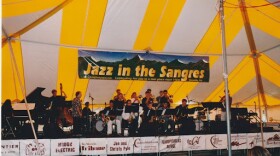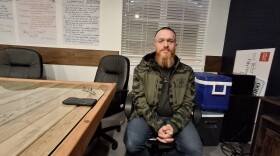-
From January 16-18, 2026, the First People’s Festival in Estes Park brought together Indigenous artists, dancers, educators, and families for a fashion show, an art market, cultural demonstrations, and a powwow, creating a space for celebration, education, and remembrance.
-
Experts say the federal government does not want to be the decision maker, and is pushing states to come to an agreement on future water use that will inform the river’s post-2026 operating guidelines. CU Boulder’s Chris Winter weighs in on the Interior’s draft environmental impact statement.
-
Warm temperatures and a lack of snow have made for an anomalous winter in the Upper Colorado River Basin. While it’s not “the new normal,” winters are certainly warming up due to climate change.
-
Scott Fitzwilliams took early retirement in 2025 after more than three decades with the U.S. Forest Service. He says the Trump administration’s public lands policies amount to a deliberate dismantling of the system.
-
The Trump administration's deadline to “review and remove” has passed with shops in the National Park closed for the season.
-
The Trump administration spent much of the year rolling back environmental regulations, stripping protections for public lands, and working to limit the development of green energy while bolstering fossil fuels.
-
Water forecasters, researchers, and politicians are all watching with bated breath as closed-door negotiations continue over allocating water in the Colorado River after 2026. Many are getting frustrated with what they see as a lack of action in the face of a mounting crisis.
-
Since 1955, NORAD has tracked Santa’s Christmas Eve journey around the globe from its headquarters in Colorado Springs. The Santa Tracker receives hundreds of thousands of calls each year from children eager to find out Santa’s location.
-
The Colorado Conservatory for the Jazz Arts began in 1999 with just six students meeting weekly in a small Denver studio and now has grown into a statewide movement spanning 25 years, which includes an annual jazz camp in the foot of the Sangre De Cristo Mountains in Westcliffe, Colorado.
-
Veterans Community Project Longmont provides housing and supportive services for veterans and their families experiencing housing insecurity. The village of 26 tiny homes was completed in June 2025.

Play Live Radio
Next Up:
0:00
0:00
Available On Air Stations










